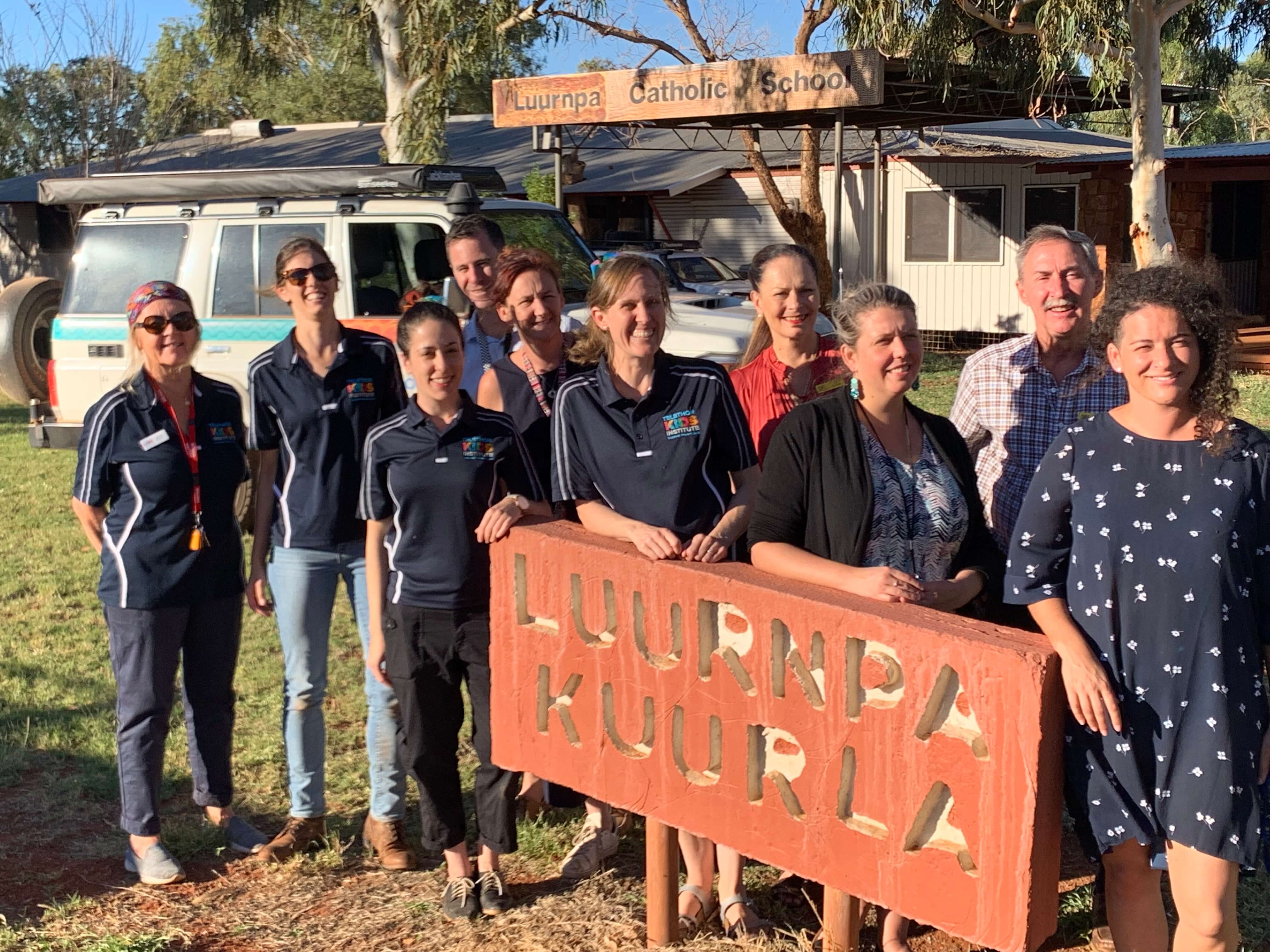Search
Research
Invasive group A streptococcal infection in the Northern Territory, Australia: Case report and review of the literatureThis review article presents the case of infant Aboriginal twins with invasive group A streptococcal infection complicated by streptococcal toxic shock...


News & Events
First week of school visits mark official launch of the SToP TrialThe The Kids Skin Health team has a busy six weeks ahead - visiting nine communities throughout the Kimberley region of WA as part of the first school surveillance activities for the SToP Trial.

News & Events
Urgent action needed to stop 500 preventable deathsA new report predicts rheumatic heart disease (RHD) will lead to over 500 preventable deaths and cost the Australian health system $317 million by 2031 if no further action to tackle the disease is taken.

News & Events
Bupa pledges half a million dollars to end rheumatic heart diseaseResearchers will extend a unique community-led project to end rheumatic heart disease in Aboriginal communities, thanks to nearly half a million dollars in funding from Bupa.
Research
Skin Health Situational Analysis to inform skin disease control programs for the Kimberley - outcomesThe Skin Health Situational Analysis was conducted in 2017 with and for stakeholders in the Kimberley region as a precursor to the SToP Trial to highlight all that was already known prior to commencement in 2018. It was completed to be a resource for communities in the Kimberley who would like to de
Research
Big data in global health: Improving health in low- and middle-income countriesOver the last decade, a massive increase in data collection and analysis has occurred in many fields.
Research
Years lived with disability (YLDs) for 1160 sequelae of 289 diseases and injuries 1990-2010: A systematic analysis for the Global Burden of Disease Study 2010Non-fatal health outcomes from diseases and injuries are a crucial consideration in the promotion and monitoring of individual and population health.
Research
Comparison of three methods for the recovery of skin pathogens from impetigo swabs collected in a remote community of Northern Territory, AustraliaImmediate plating of impetigo swabs is the gold standard for bacterial recovery but is rarely feasible in remote regions.
Research
Acute Rheumatic Fever and Chronic Rheumatic DiseaseThis chapter describes the epidemiology, pathogenesis, clinical manifestations, diagnostic criteria, and management principles of acute rheumatic fever.
